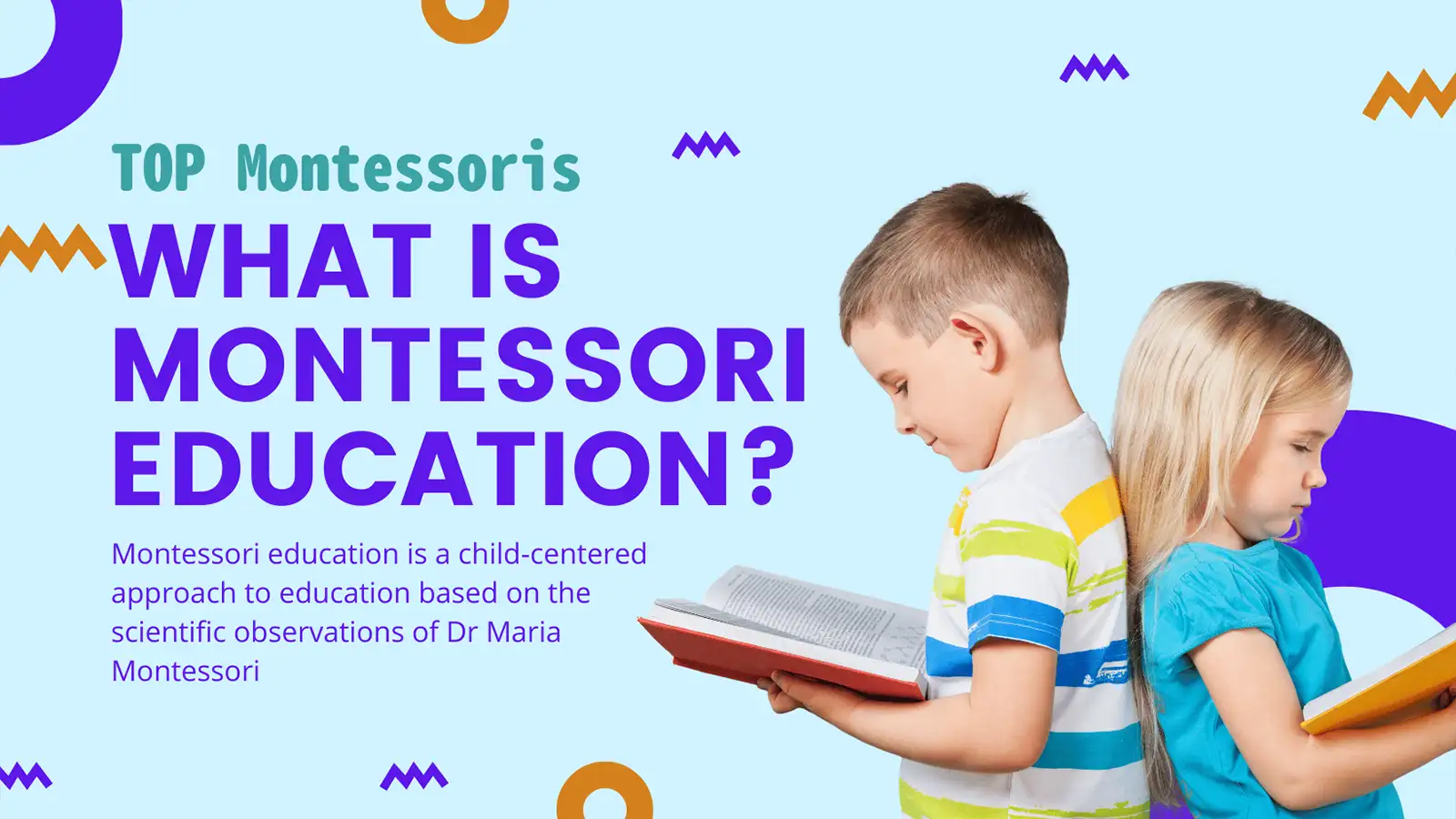Have you ever wondered how Montessori education shapes a child’s early development? Why is this approach increasingly popular among parents and educators worldwide? Does it truly offer a unique advantage in nurturing young minds?
Montessori education is a child-centric educational approach based on scientific observations by Dr. Maria Montessori. It emphasizes hands-on, self-paced, collaborative, and joyful learning. Montessori education fosters independence and respect for a child’s natural psychological, physical, and social development. It’s not just a teaching method; it’s a way of understanding and supporting the whole child.
Montessori education, with its unique focus on individual learning paths, intrigues and inspires worldwide educational discussions.
Who was Maria Montessori?
Maria Montessori was an Italian physician, educator, and innovator; Dr. Maria Montessori pioneered the Montessori Method in the early 1900s. Pioneering in her time, she observed that children learn best in an environment where they are free to explore their rhythms. Her method emphasized respecting children’s natural development, hands-on learning, and creating a prepared environment for their developmental needs. Montessori’s work in psychology, pedagogy, and anthropology formed the basis of her educational philosophy, which continues to influence modern pedagogy.
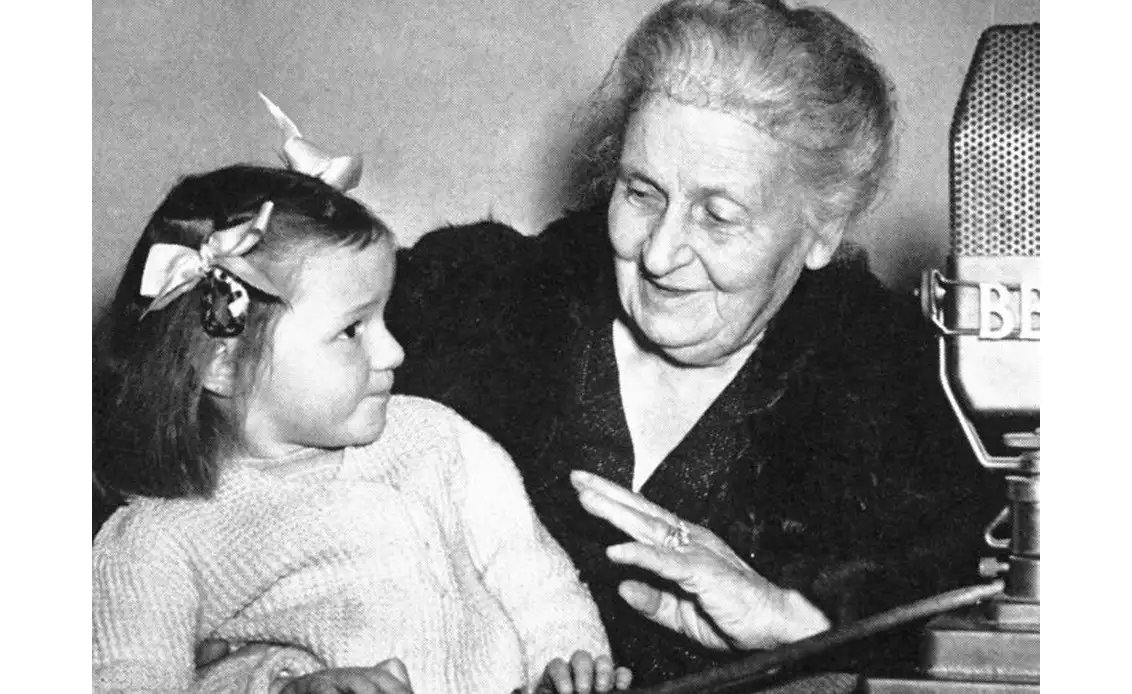
What Makes Montessori Education Stand Out?
How does Montessori education differentiate itself from traditional educational methods? Why are parents and educators drawn to this approach?
- Child-Centered Approach: Montessori classrooms are student-led and self-paced, guided by trained teachers. This individualized learning fosters autonomy and a love for learning.
- Prepared Environment: Classrooms are designed to facilitate student exploration and discovery, which promotes a nurturing and inclusive atmosphere.
- Hands-On Learning: Montessori education emphasizes learning through doing, using specially designed materials to foster sensory and practical experiences.
- Social Interaction and Community: It encourages a collaborative environment where children of varying ages work together, fostering social development and empathy.
- Holistic Development: The focus is not only on academic skills but also on developing the whole child – emotionally, socially, physically, and cognitively.
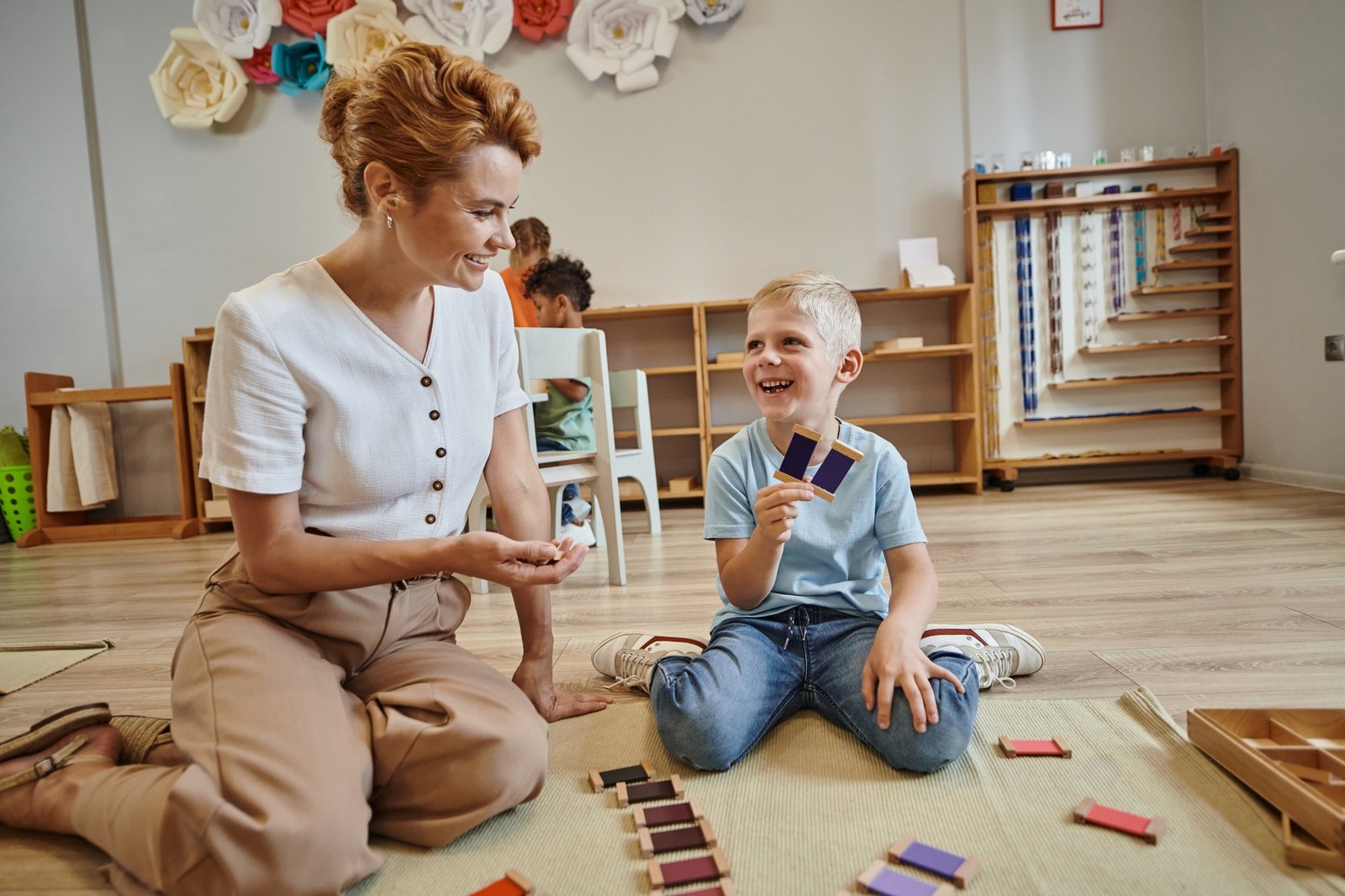
How Is a Montessori Classroom Structured?
What does a typical Montessori classroom look like? How is it different from conventional classrooms?
- Mixed Age Groups: Montessori classrooms typically have children of different ages, usually spanning 3-year age groups. This encourages peer learning and leadership skills.
- Role of the Teacher: Montessori teachers guide rather than instruct, observing and adapting to each child’s learning style and pace.
- Learning Materials: Classrooms are equipped with Montessori-specific materials that are aesthetically pleasing, self-corrective, and designed to encourage exploration.
- Learning Zones: The classroom is divided into distinct areas for different activities – practical life, sensory, mathematics, language, and culture.
- Student Choice: Children choose their activities, which promotes self-direction and intrinsic motivation.
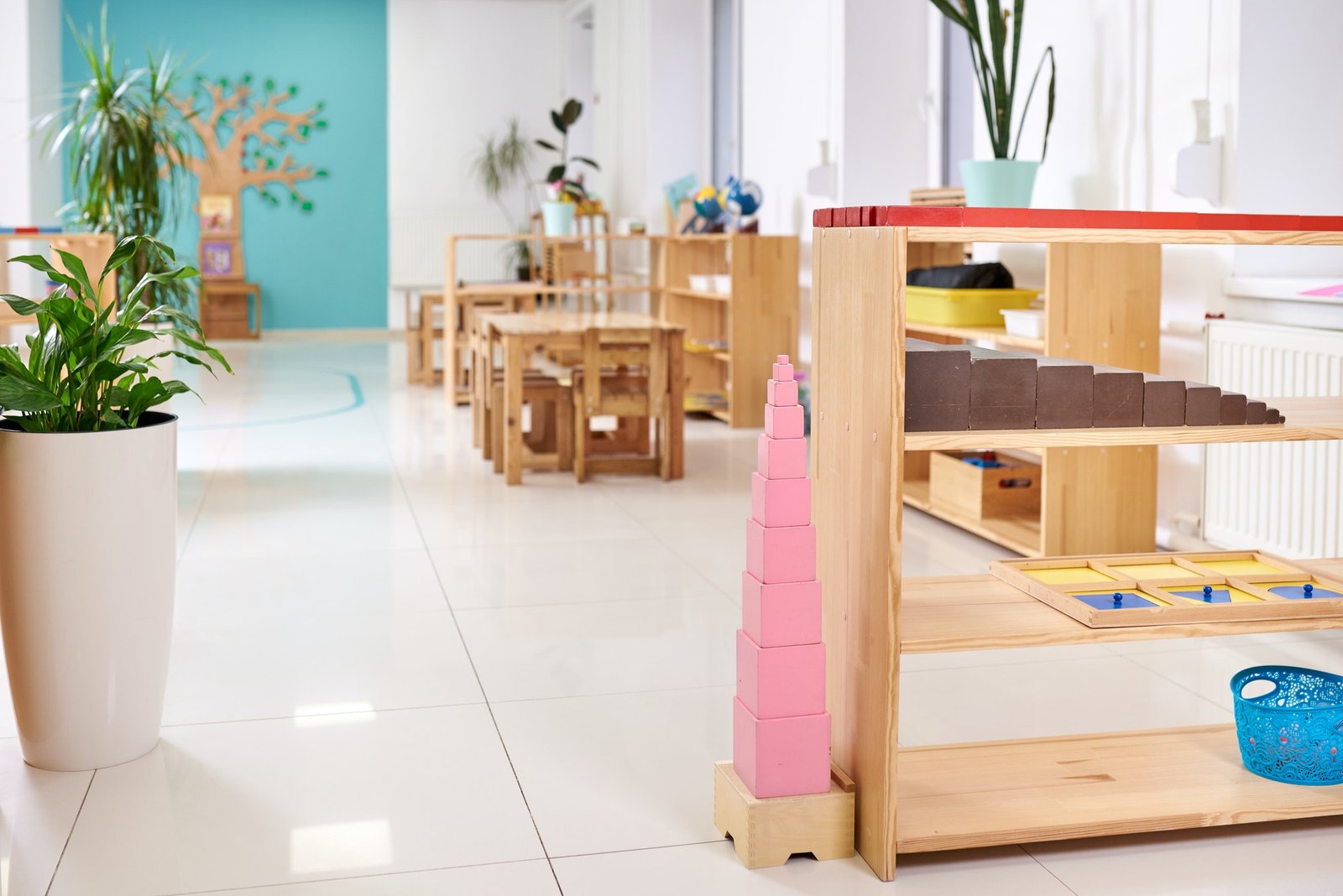
The Core Principles of Montessori Education
What are the foundational principles that guide Montessori education? How do these principles impact learning?
- Respect for the Child: Recognizing children as individuals with strengths, interests, and learning styles.
- The Absorbent Mind: Embracing the idea that children learn effortlessly and joyfully through their experiences.
- Sensitive Periods: Understanding and capitalizing on when children can most learn specific skills.
- Prepared Environment: Creating a learning environment tailored to children’s needs, promoting independence and exploration.
- Autoeducation: Allowing children to learn and correct their own mistakes, fostering self-discipline and responsibility.
Montessori Education vs Traditional Education: A Comparative Analysis
How does Montessori education compare with traditional educational models? What are the key differences?
Montessori Education:
- Learning Pace: Montessori allows children to learn at their own pace, unlike traditional education, which often follows a set curriculum.
- Role of the Teacher: In traditional education, teachers are the primary focus, while in Montessori, the child’s learning experience is central.
- Classroom Environment: Traditional classrooms are typically age-segregated and less hands-on, whereas Montessori classrooms are age-diverse and activity-based.
- Assessment Methods: Montessori assesses children’s progress through observation and portfolio, contrasting with traditional education’s standard tests and grades.
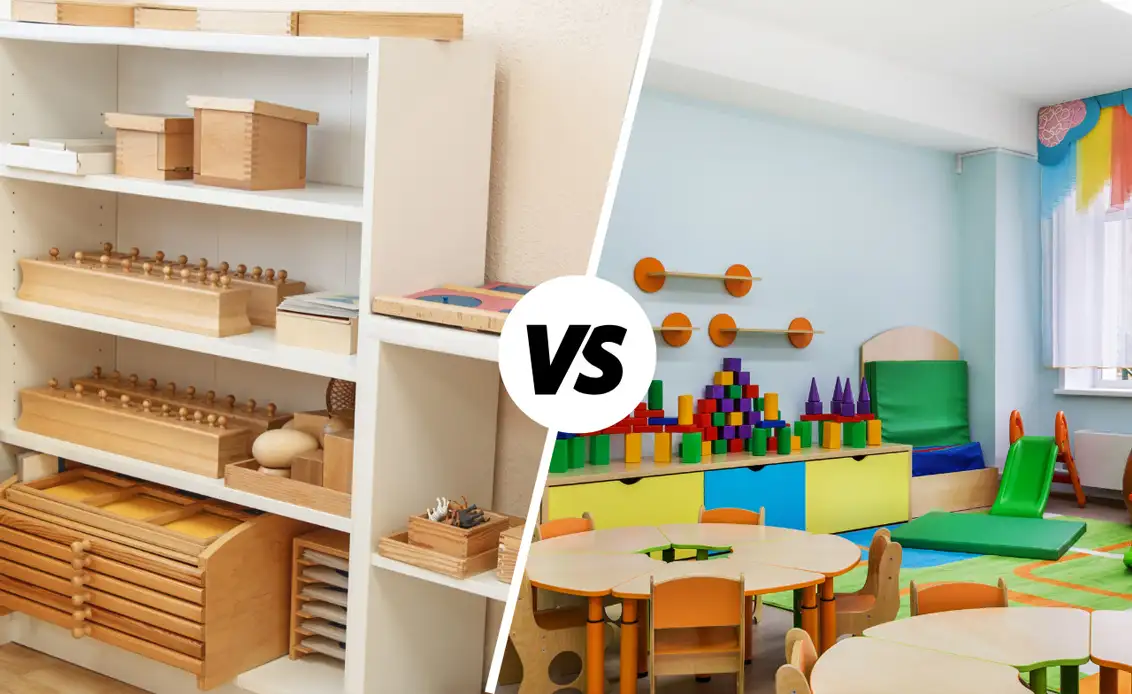
Implementing Montessori Principles in Early Childhood Education
What are the practical ways to implement Montessori principles in early childhood education settings?
- Customized Learning Paths: Tailoring education to meet each child’s unique needs and pace.
- Creating a Prepared Environment: Designing spaces that are child-sized, resource-rich, and conducive to self-directed learning.
- Role of the Educator: Teachers are facilitators who observe, guide, and encourage children in their learning journey.
- Collaborative Learning: Encouraging peer interactions for social and cognitive development.
- Focus on Life Skills: Teaching practical life skills alongside academic learning.
Challenges and Limitations of Montessori Education
What are the potential challenges and limitations faced in Montessori education?
- Accessibility: Montessori schools can be expensive and less accessible to low-income families.
- Misconceptions: Misunderstandings about the Montessori method can lead to inconsistent implementations.
- Adaptability: Integrating Montessori principles into existing education systems can be challenging.
- Teacher Training: Requires specialized and extensive training for educators, which can be a barrier.
- Standardized Testing: Montessori students might find adjusting to traditional testing environments challenging.
Montessori Education’s Impact on Child Development
How does Montessori education impact a child’s cognitive, social, and emotional development?
- Cognitive Development: Enhanced through self-directed learning, problem-solving, and critical thinking.
- Social Skills: Improved through mixed-age interactions, community tasks, and collaborative learning.
- Emotional Growth: Fostered by an environment that respects and nurtures individual feelings and perspectives.
- Independence and Responsibility: Encouraged through practical life skills and freedom within limits.
- Joy of Learning: Instilled through a curriculum that is engaging, relevant, and fun.
Conclusion
Montessori education transcends the traditional teaching boundaries, offering a holistic approach to child development. It’s a method that respects and adapts to each child’s unique qualities, encouraging them to explore, discover, and learn at their own pace. In a Montessori environment, children develop academically, socially, emotionally, and physically. This approach prepares them for a world that values creativity, critical thinking, and collaborative skills. As we adapt to the changing educational landscape, Montessori’s principles remain as relevant and transformative today as they were a century ago.

